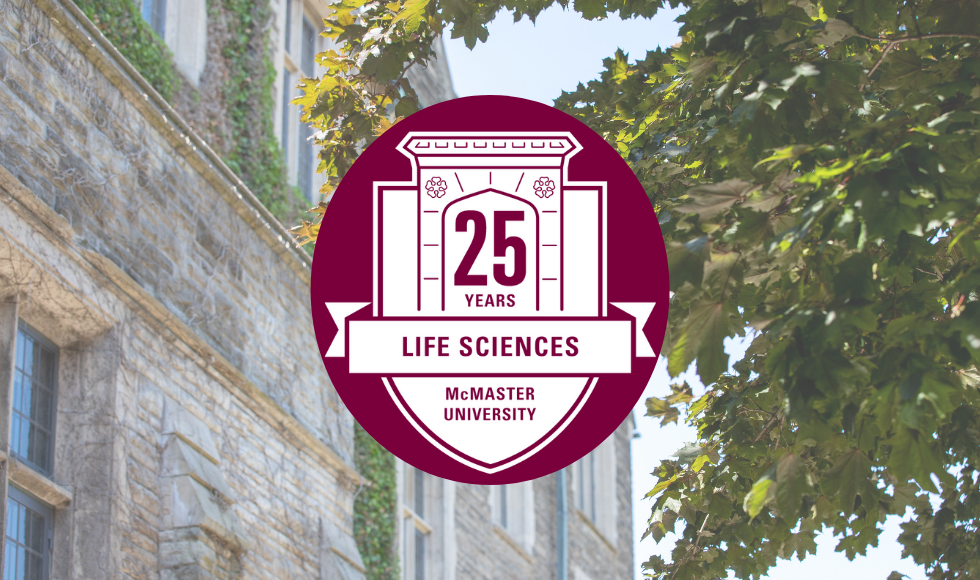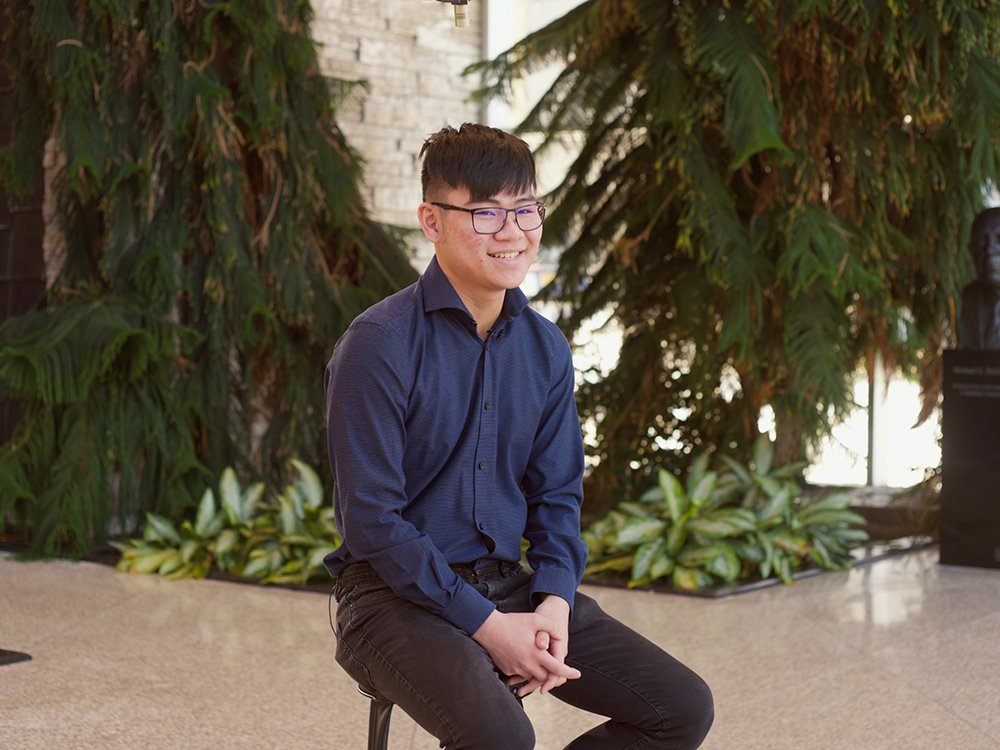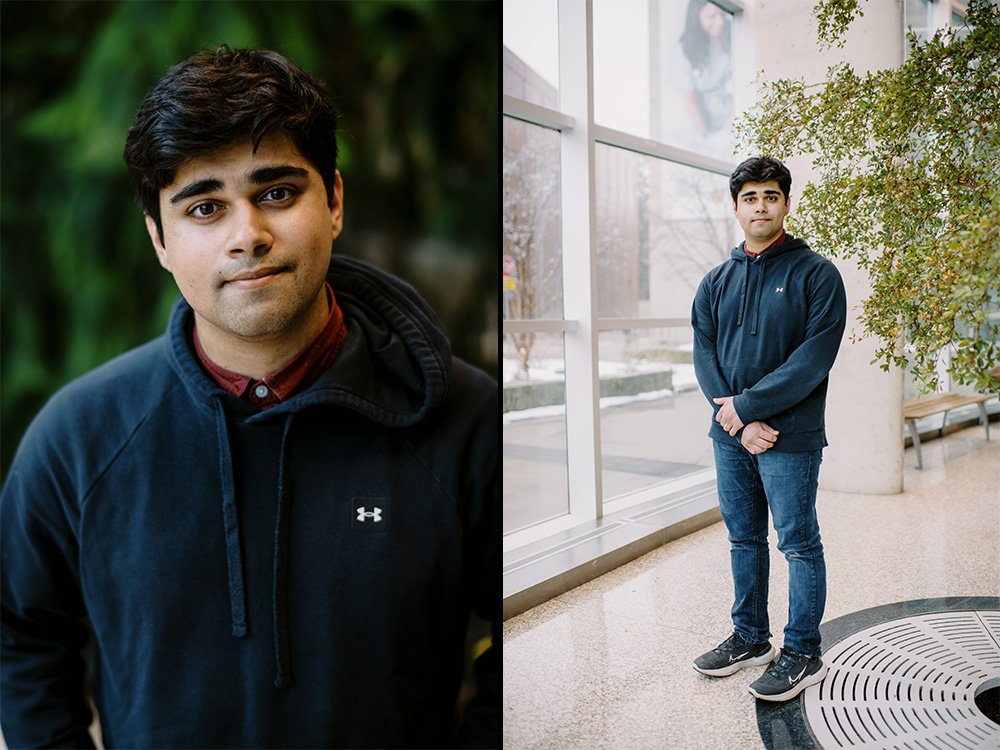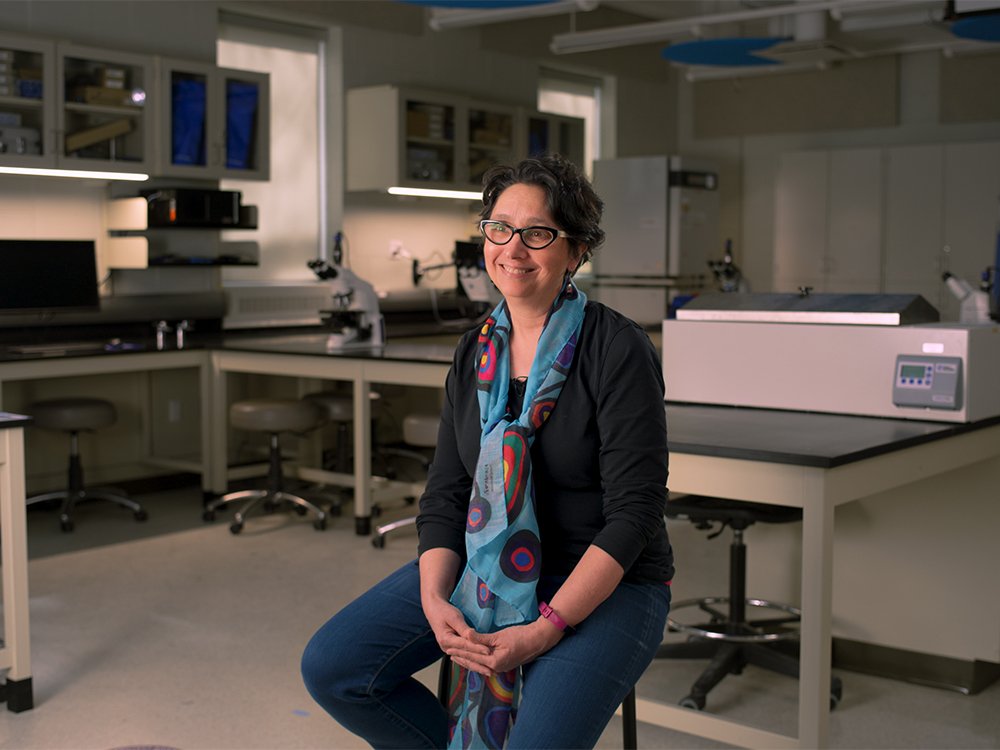McMaster Faculty of Science celebrates 25 years of excellence in the life sciences

The Honours Life Sciences program at McMaster is marking 25 years of excellence by featuring and reflecting on the experiences of its faculty, current students, and alumni.
The Honours Life Sciences program at McMaster has been providing students the tools to solve real-world scientific problems for 25 years.
The Faculty of Science has conferred 6,747 degrees in the life sciences, and McMaster has been ranked one of the world’s top 50 schools to study life sciences.
Students gain a firm foundation in traditional scientific disciplines through the programs but are also exposed to multidisciplinary approaches. This combination – and the opportunity to study topics in human health, aging and disease – prepares students for a variety of careers in science and elsewhere.
“Life Science students are diverse in their interests, lived experience and the talents that they bring to bear in their academic journey,” says Ana Campos, the director of the School of Interdisciplinary Science.
Education through community-based projects and experiential opportunities prepares students for a wide range of careers.
“A degree in the Life Sciences program can prepare you for a career within traditional sciences as well as outside of them. Use your undergraduate courses, co-ops, and extracurricular experiences to be a guidepost in helping you find what type of work you are passionate about, and what type of skills you want to be applying in your jobs, such as data analysis, problem solving, and science communication,” says Shaarujaa Nadarajah Honours Life Sciences Program ‘18.
The Faculty of Science is marking the 25-year milestone by featuring and reflecting on the experiences of its faculty, current students, and alumni. Hear from some of them below.

Jayco Cheng, honours life sciences student, Level IV
Why did you choose to study Life Sciences at McMaster?
“I chose the Life Sciences because I liked the freedom in course selection and flexibility in career pathways in this program. When I joined the program, I knew what my interests were but I didn’t know what I wanted to do with my undergraduate degree; nor did I know what I could do. I like to think of Life Sciences as a program that can offer a breadth and depth because it has a variety of different courses, which is why it is interdisciplinary. I also like how once you identify what you are interested in, you can opt to streamline down that path such as conducting a thesis project.”

Katie Moisse, assistant professor, School of Interdisciplinary Science
What is special about the teaching practices in the Life Sciences Program?
“I love the focus on transferable skills in the Life Sciences Program. Employers today are looking for students who are skilled at critical thinking, communication and collaboration. Our students have so many opportunities to develop and hone these skills. I also love the focus on hands-on, community-engaged learning. Students should graduate with real-world experience that they can apply in graduate or professional programs and careers. It’s amazing to see our students seeking out these opportunities. They benefit and so do our communities.”

Tipu Islam, Honours Life Sciences Student, Level IV
How is your degree contributing to your growth, personally and professionally?
“The Honours Life Sciences program is an interdisciplinary route of science exploration. This honours degree has allowed me to gain insight into different areas of science i.e., the health sciences, Biology and Chemistry as well as areas of philosophy.”
What advice would you give to your past self on day one at McMaster/ in the Life Sciences Program?
“If I could go back in time, I would tell first year me that his resilience will result in success. Every setback is an opportunity to further yourself. Stay motivated, keep at it, and you will go great places. Also, I would tell him that there is a quiet study area in Mills library on the third floor!”

Ana Campos, director, School of Interdisciplinary Science
How have students impacted you?
“I came to Mac 30 years ago and continue to be grateful every day for the opportunity to develop my career here and to be part of the journey of so many talented colleagues that made seminal contributions to knowledge. What I was not quite prepared for and continues to amaze me, is the impact students have on you. To be an instructor is to have a platform to impact and support the development of talented students, but it is also in equal measure an opportunity to learn from them as you witness their growth their struggles and successes.”
Read more about how the life sciences programs have impacted the lives of faculty, current students, and alumni here.


